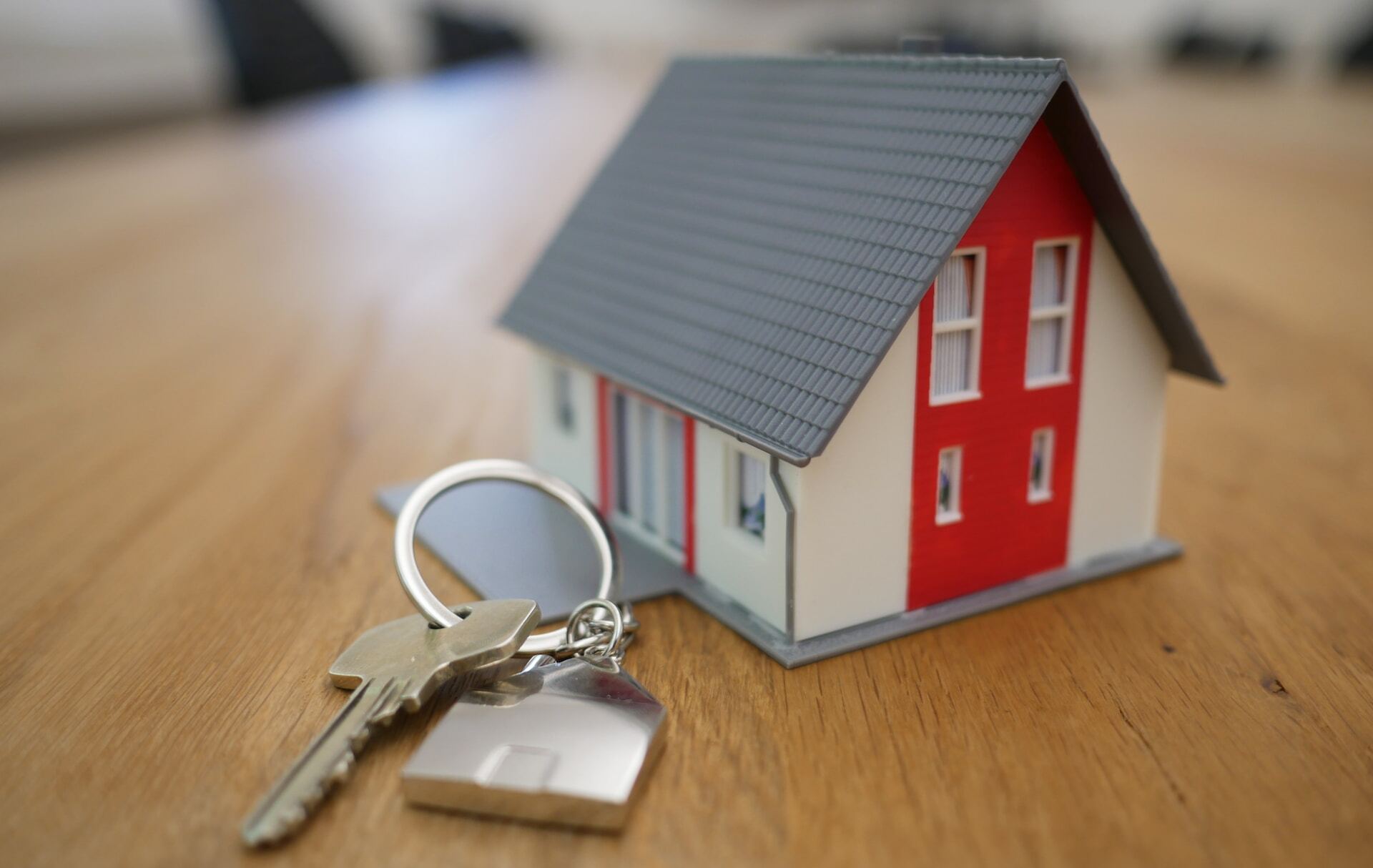Having an own home is one of the primary financial objectives of everyone. A person was seen as settled in life by the older generation when they owned their own home. However, the younger generation enjoys living a fast-paced lifestyle and is always looking for greater chances. There is growing discussion regarding whether it is preferable to pay rent or purchase a property in light of this evolving situation. There are advantages and disadvantages to each possibility in this never-ending discussion.
Let’s examine the advantages and disadvantages of renting versus buying a home so that we can assist you in deciding what is best for you.
Pros And Cons of Buying a Home?
Purchasing a home is equivalent to planting roots in a community. With long-term goals and a vision for the future, the owner and their family purchase a home. The benefits and drawbacks of owning a home today, however, are highlighted below.
Benefits of Buying a Home
The main advantages of purchasing a property are,
1. Having a financial security
The owners’ increased sense of financial security is the main advantage of home ownership. One of the most expensive assets that a person often owns is real estate, which can be used as collateral when necessary. In addition to providing financial security, owning a home gives a person and their family a sense of privacy, and a secure haven where they may make future plans and feel a part of both their home and the community.
2. Tax benefits on home loan
As was already stated, purchasing a property is fairly expensive and frequently out of the price range of the typical Indian without financial support in the form of a loan. The Income Tax Act offers several deductions and exemptions to taxpayers for a loan obtained to buy a home in an effort to lessen their financial burden. These tax advantages include a deduction for the principal amount paid up to Rs. 1,50,000 under Section 80C. Section 24 of the Act also allows taxpayers to deduct up to Rs. 2,000,000 for the interest component of EMIs.
3. Safety of investment
Compared to other investment options like equities, mutual funds, etc., real estate is thought to be a safer bet. Although investing in real estate yields lesser returns, the capital investment is secure because property values rarely decline.
4. Freedom to customize the home
One has the freedom to personalize a room to suit their tastes when they purchases a home. In the case of a rented space, this freedom is constrained because the owners may or may not consent to the necessary adjustments.
Related Article: 9 Important Tips for First-Time Homebuyers
Disadvantages of Buying a Home
Let’s talk about the drawbacks of home ownership after first going over the advantages.
1. Increase in EMI cost
The increase in monthly costs is the direct disadvantage of home ownership. The monthly expenses are typically made up of at least 50% EMI costs. The outflow is fairly large as compared to rental costs, therefore it takes careful financial planning to keep afloat.
2. Requires a huge down payment
An average Indian’s ambition of owning a home is only possible with a loan. The buyer is required to provide at least 10%–20% of the purchase price as a down payment because lenders never lend 100% of a home’s value. For the majority of people, coming up with this down payment is also a difficult effort that depletes their funds significantly.
3. Increase in ancillary costs (maintenance)
Owning a home entails a number of ancillary costs, including upkeep, property taxes, home improvements, repairs, and so forth. These expenses increase the burden on the owners and ultimately drive up the cost of the property as a whole.
4. Reduced mobility or flexibility to relocate
Reduced mobility is one of the major obstacles to buying a property. If a homeowner is moving permanently, they must either sell their home or rent it out. The additional rental fee for the new place will also increase their financial load if they are still making EMI payments on their current home. As a result, owners should carefully assess any relocation decisions.
5. Government hassles at the time of purchasing or selling the property
The complications involved in purchasing and selling real estate in India make the process exceedingly time-consuming. This frequently deters would-be purchasers, who instead opt to rent a house.
Pros And Cons of Renting a Home?
Another choice for those who need a roof over their heads is to rent a house. Similar to purchasing a home, this choice includes advantages and disadvantages. Let’s get into more depth about them below.
Benefits of Renting a Home
Below are some benefits of renting a house.
1. Reduced rent cost as compared to EMI
When compared to EMI costs, rental costs are significantly lower. For instance, in cities like Bangalore, the price to purchase a home might be around Rs. 1,50,000, and the EMI can be as low as Rs. 80,000 or as high as Rs. 90,000, depending on the down payment. On the other hand, the same location may be available for rent for about Rs. 30,000 to Rs. 40,000. As a result, the person’s costs are effectively cut in half, increasing their monthly savings in the process.
2. No hassles of paying ancillary costs
The extra expenses of property ownership, such as property taxes, maintenance, renovations, etc., are not passed through to the tenants. These fall under the purview of the property’s owners, which lowers the total cost to tenants.
3. Relatively lower fluctuations in rent costs as compared to EMI
Any changes in the country’s interest rates or other external factors will have an impact on a person’s EMI expenditures. Unless there is a significant long-term increase in the property value, the rent price is more or less stable and rarely varies.
4. Increased mobility and ability to relocate
Greater mobility is the main benefit of renting a space. Tenants are free to relocate between cities or even to another nation without fear of missing out on greater possibilities due to establishing roots.
5. Tax benefit of HRA
The tax benefit in the form of HRA is another advantage of leasing space. The provision of the Income Tax Act makes the HRA calculation and tax advantage available. The lower three criteria are:
- The actual rent paid less than 10% of the basic monthly salary
- HRA received from an employer
- 50% of the basic salary (if the taxpayer lives in a metropolis)
- 40% of the basic salary (if the taxpayer lives in a non-metropolis)
Useful Article: What to Look for While Renting A House For A Family
Disadvantages of Renting a Home
1. Increase in rent cost every year
A standard lease will typically have a provision stating that rent will increase by at least 5% per year. This indicates that until the tenant vacates the rented space, the rent will rise yearly. In the end, renting might not be more advantageous than buying a home, thus doing so would be preferable.
2. No asset built against rent expense
Even though the rent is less than the EMI on such a home, there is no benefit of asset accumulation. Because a person is at least creating an asset when they pay large EMIs, this spending might be classified as a capital investment. However, because rent is an expense that does not help you generate wealth or assets, you can disregard it as a legitimate expense.
3. Limited freedom to customize your personal space
Rental properties have limited potential for customization and personalization. This frequently presents as a barrier to fostering a sense of belonging in such a place. Having a home of your own eliminates this sensation and gives them the option to design their own private place.
4. Possibility of moving out at short notice
Moving out on short notice is always an option with rental premises. The home’s owner can wish to sell the property or keep it for themselves. As a result, rental spaces suffer from a lack of stability that cannot be fixed.
What is better buying or renting?
Every person has thought about the decision of whether to buy or rent a home at some point. Renting allows for the flexibility to move if better possibilities arise, but purchasing a house offers stability and a resource that can be relied upon in case of emergency. Compared to renting a home, purchasing one is a more expensive option. If the rental costs exceed the EMI cost for the same location, renting a house ceases to be a desirable alternative. Since the real estate market is currently experiencing a relative downturn, this is a great time to invest capital in real estate.
Useful Article: Guide to Find a Realtor for Getting the Perfect Home
Simple ways to choose between renting & buying a house
Here are some straightforward recommendations to help someone decide between renting and buying a home:
- Assess your financial situation: Establish your spending plan and evaluate your savings to see if you can afford a down payment, mortgage payments, maintenance charges, and other expenditures of homeownership.
- Consider your lifestyle and future plans: Consider your lifestyle requirements, as well as your long-term goals, family plans, and future ambitions, and how these may affect whether you decide to rent or buy.
- Compare the costs: Compare the costs of owning a home, such as mortgage payments, down payments, closing charges, and recurring expenses, to the costs of renting versus buying a home, including rent, security deposits, maintenance, property taxes, and insurance.
- Evaluate the real estate market: Determine whether it is a good time to buy or rent a home by researching local real estate market trends and basing your decision on current home prices, mortgage rates, and other market variables.
- Seek expert advice: Speak with a real estate agent, financial advisor, or mortgage lender to seek professional advice and guidance on the advantages and disadvantages of renting versus buying a property, as well as which choice may be more fit for your financial situation and personal preferences.
The choice between renting and buying a home in India ultimately comes down to a number of variables, such as your financial status, lifestyle requirements, and long-term objectives. Making an informed choice that best suits your needs and is in line with your financial and personal goals can be aided by careful consideration and professional counsel.
Related Article: How You Can Rent Out Your Home in India?
Conclusion
Both owning a home and renting one have advantages and disadvantages, and what works for one individual might not be the best option for another. Therefore, the choice of whether to buy or rent a property must be carefully made after taking into account a variety of criteria, such as the cost of each option, the location, the growth in the value of the property, mobility, etc.


